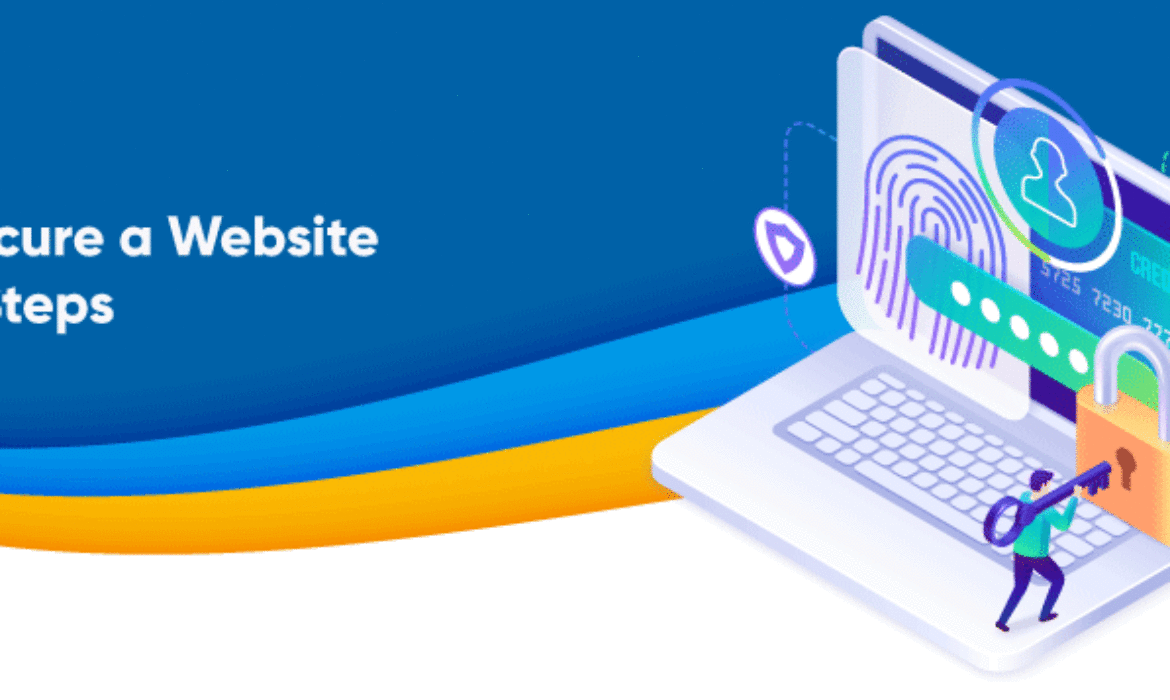How to secure a website in 2022 | 6 tips to keep it secure
An online presence gives your business valuable visibility, but a secure website gives customers confidence that they can shop with you. When building a company website, it is imperative to prioritize security – otherwise, your site may repel customers. Launching a company website can increase brand awareness and provide convenient interactions with customers.
Ready to learn how to make a website secure?
- Secure Your Website with HTTPS
- Scan Your Website For Vulnerabilities
- Keep Your Website Clean
- Use a Web Application Firewall
- Back-Up Your Website Regularly
- Encrypt Your Login Page
Secure Your Website with HTTPS
HTTPS stands for HyperText Transfer Protocol Secure. It’s that bit of the web address you definitely don’t type out. It’s just the usual “HTTP” with an “S” tacked on to indicate that the site is secure.
HTTPS secures data via Transport Layer Security protocol (TLS), which provides three layers of protection:
Encryption: Encrypting the exchanged data to keep it secure from eavesdroppers. That means that while the user is browsing a website, nobody can “listen” to their conversations, track their activities across multiple pages, or steal their information.
Data integrity: Data cannot be modified or corrupted during transfer, intentionally or otherwise, without being detected.
Authentication: Proves that your users communicate with the intended website. It protects against man-in-the-middle attacks and builds user trust, which translates into other business benefits.
Scan Your Website For Vulnerabilities
It is important to regularly perform web security scans to check for website and server vulnerabilities. Web security scans should be performed on a schedule and after any change or addition to your web components. There are a number of free tools on the Internet that you can use to measure how secure your website is. Those tools can be helpful for a brief review, but they won’t detect all the possible security flaws of your site. Having a professional perform security scans on your website will provide an in-depth review and explanation of the vulnerabilities on your website.
Keep Your Website Clean
Every database, application, or plugin on your website is another possible point of entry for hackers. You should delete any files, databases, or applications from your website that are no longer in use. It is also important to keep your file structure organized to keep track of changes and make it easier to delete old files.
Use a Web Application Firewall
As soon as your website is online, it is exposed to a rogue’s gallery of cyber threats. Automated bots are out there scanning for vulnerable websites, and newly created sites are an especially tempting target. Adding a web application firewall (WAF) such as Cloudbric, Incapsula, or Cloudflare, will secure your website before the attacks start.
Back-Up Your Website Regularly
Back up your site regularly. You should maintain backups of all of your website files in case your site becomes inaccessible or your data is lost. Your web host provider should provide backups of their own servers, but you should still back up your files regularly. Some content management programs have plugins or extensions that can automatically backup your site, and you should also be able to back up databases and content manually.
Encrypt Your Login Pages
Use SSL encryption on your login pages. SSL allows sensitive information such as credit card numbers, social security numbers, and login credentials to be transmitted securely. Information entered on a page is encrypted so that it’s meaningless to any third party who might intercept it. This helps to prevent hackers from accessing your login credentials or other private data.
Final Word
When managing a website, don’t get hung up on all of the dangers that come with it. A website can help your brand, business, and online footprint grow immensely when managed well.
When it comes to protecting your website, working with a security company that provides services can be invaluable. While a lot of security measures can be handled on your own, others should be managed by a professional.

